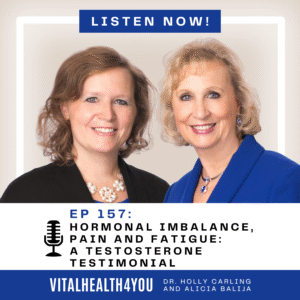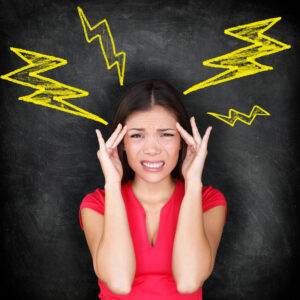“Wow! My face is on fire!” Menopause or peri-menopausal hot flashes, sweats, moodiness, rapid heart beat, and alternating hot and cold feelings are no fun. If it was just feeling hot, that would be one thing. We all get too hot at various times of our lives. But hot flashes are different. Many times they are also associated with feeling sick – flu-like – just before the onset. It is generally localized and intense in the face, chest or even legs, and it’s difficult to cool down.
One day, years ago, I was driving barely over the speed limit, but aware that it felt frantic. I caught myself and questioned what was going on in my head. I realized I was looking for a snow bank to bury my face in! “Oh my gosh! Was that a hot flash?” That was my first experience. I imagined myself explaining that to a police officer if I had been pulled over and the embarrassed thought alone made me have another hot flash!
Well, I decided then and there that I was not going to do this! I immediately took a look at what was wrong in my lifestyle. I treat menopause often in practice, but now that it was happening to me, it was time to look at my own medicine.
I know what works. Do you? First of all we look at diet. There are several offenders that can trigger hot flashes, sweats, moodiness or any of the other symptoms of peri-menopause or menopause. Your triggers may be different than the average person, but here are the most common: caffeine (especially coffee), hot drinks or soups, spices and alcohol. Not drinking enough water can trigger symptoms as well.
Other, non-food triggers include being in a hot room or hot weather, stress, upset, embarrassment, tight clothes, working out and smoking.
Obesity and thyroid problems can also increase the possibility of menopause-related hot flashes. Non-menopausal hot flashes include: medication side effects, tumors, significant immune challenges such as HIV and others. If you are unsure, make sure you get checked out.
No matter the cause of your hot flashes and other symptoms, there is hope. There are several modalities that have demonstrated significant value in reducing menopausal symptoms: Acupuncture is on the top of the list, but also yoga, breathing exercises, tai chi and qi gong meditation and guided thought programs (to reduce stress-induced symptoms), massage, chiropractic and other healthy approaches.
Most important is to dig deep and ask WHY? If you are unhealthy, use these modalities to restore health. As with all symptoms, they are just red flags telling you that something is wrong. Symptoms during menopause are an option, not an absolute.
If you are looking to bury your face in the snow, a refrigerator or other super cool option, it is time to take action now. You (and your loved ones!) don’t have to suffer.
©2018 Holly A. Carling, O.M.D., L.Ac., Ph.D.







